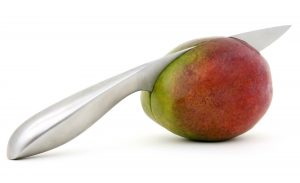I was talking my niece who lives in Australia last week. We whatsapp regularly which is great, but we have only small windows during which we’re both awake and alert enough to be super witty and entertain each other – or indeed support each other as the need arises. (We’re only 8 years apart for anyone who might be concerned I’m leaning on a child for my entertainment and emotional needs!)
Anyway, I’ve been very excited recently, sending her beach pics and screenshots of my weather app to show off our heatwave – Australia isn’t the only place with sun you know – oh no! We have it too – in a weirdly consistent and reliable way these days. Drought even! How exciting! (But yes, how grim… we need to sort that out for future years don’t we?!)
I was relating to her a sorry tale of how I was the victim of road rage last weekend. A woman actually stopped her car in front of mine, cutting me off. She got out of her car and approached me – shouting and gesticulating – well, you can imagine.
That gif, by the way, is my attempt at humour as I process how unpleasant and genuinely frightening it was to be at the receiving end of such rage.
My crime? I had put on my hazards as she was tailgating me and I had nowhere to go. I must have delayed her by at least 2 seconds so I guess I deserved the rage…
“Ah!” pronounced the sage niece – “That’ll be Mango Madness”.
The what now??
So I hopped onto the Google machine as this woman often invents things in her creative brain that sound convincing but are entirely imaginary and designed purely to entertain. And there it was – “Mango Madness”.
Well, well, well.
It was originally merely a local colloquialism. But more recently it describes a type of seasonal affective disorder ‘identified’ by a Northern Territory doctors and psychologists. This disorder presents as a change in behaviour of residents of the NT during particularly hot and humid weather. It coincides with mango season. 
And now they’ve actually studied it.
2014 research linked seasonal tropical heat with raised rates of anxiety, stress and hostility. They also noted fewer hours of sleep, reduced appetite and lower energy levels.
The study was published as northern Australia entered the 2014 monsoonal build-up – a period of extreme weather tension that was already known by locals as “mango madness”.
Sue Coleman and Dr Mary Morris, the research lead authors at Charles Darwin University, postulate that this could have implications for occupational health and safety laws in Australia. One finding, for example, was that outdoor workers had poorer mental health than colleagues with air conditioning.
And I thought of the staff and pregnant and /or ill and possibly grieving patients in the CUMH last week without air-conditioning. In a modern building…
They also found that so-called “mango madness” triggers violence as the hot and humid season hits. Rates of assault rise, injury figures rise. A Dr Thomas and his colleagues mapped monthly hospitalisations over 12 years to 2006 and compared them with historic weather data on temperature, humidity, rainfall, and sunshine. They found the same. It’s all documented, all real.
And I thought of that woman coming at me with her face utterly contorted with rage…
[bctt tweet=”In tropical climates, there’s a combination of these heat tensions that affect the way the brain works and influences irritability and impulsiveness for violence, – Dr Brambling, psychologist.” username=”psychosal” prompt=”tweet to another mad mango”]
Mango Madness. Not just a yummy looking smoothie!

And perhaps not that surprising. We all already know that we get ratty when we’re too hot and sweaty. Tensions are high – can you feel it? Some of us are secretly hoping for rain – not just for the grass and the farmers, but for the relief, the return to normality.
Maybe then we can all get back to moaning about the damp, dull summer – content in the knowledge that all is as miserable it always was.
#yay!
PS – but meanwhile maybe buy a fan and sit in an ice bucket??
